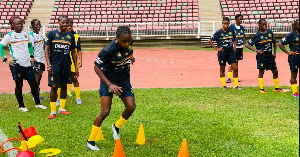The Central African Republic, CAR, has now embarked on another phase of its transition to democratic civilian governance following the election of Catherine Samba-Panza on Monday, January 20, 2014 by the National Transitional Council, CNT or interim parliament.
She becomes the next Transitional President, replacing Michel Djotodia, who was obliged by sub-regional leaders to resign on January 10, 2014 alongside Prime Minister Nicolas Tiangaye. CNT Speaker, Alexandre Ferdinand Nguendet, held the fort as Acting Head of State while his colleagues sorted out the election details. However, the task ahead of Samba-Panza promises to be difficult, but surmountable.
Security, Refugees:
Among the first challenges for the new leader is ensuring security to enable hundreds of thousands of Internally-displaced People, IDPs and refugees in neighbouring countries, to return home. Normal activities can only restart if these people return to their usual abodes, but for this to happen, a robust Demobilisation, Disarmament and Reintegration, DDR programme for defunct Séléka, anti-Balaka fighters and individuals with arms, must be put in place. This will certainly require incentives and foreign funding. For example, people could be encouraged to surrender their arms against pre-fixed amounts of money.
Forgiveness, Reconciliation:
For a country torn apart by decades of strife and the ongoing sectarian violence, there is urgent need to begin healing the wounds. In this light, forgiveness and national reconciliation could be facilitated by a South African-type Truth and Reconciliation Commission, TRC. It is true that the tenure of President Catherine Samba-Panza is too short to see such a process through, but she can at least build on what the country's Christian and Moslem leaders have been preaching. Such a process would ensure that peace and harmony again reign among the country's sharply split ethic and religious groups, as well as the political class.
Smooth Transition:
CAR's new Head of State knows very well that her task is to ensure a smooth transition so that free, fair and transparent democratic elections can hold by February 2015. This will entail working closely with all major stakeholders. These include the political class, civil society, the Transitional Parliament, the Economic Community of Central African States, ECCAS, the African Union-led MISCA peacekeepers, eventual UN and EU peace missions, 'Opération Sangaris' French troops and the UN, in respecting various phases of the transition calendar.
Stemming Humanitarian Disaster:
Though the current humanitarian situation in the country is already serious, the new administration is expected to do something to avoid what some people have described as a 'mega disaster.' Many humanitarian agencies have been unable to carry out their work because of heightened insecurity. The government would need to liaise with peacekeepers to ensure free passage of aid staff in order to stop further deaths from disease and hunger.
Averting Genocide:
Though the ongoing sectarian and ethnic violence has already claimed thousands of lives, there have been warnings by the international community that a Rwandan or Bosnian-type genocide could be in the making. It is therefore expected of the new government take urgent measures to ensure that rising religious and ethnic tensions are curbed.
Restoration Of State Authority:
Above all, for the actions of President Catherine Samba-Panza to have any impact on the nation, efforts must be made to restore State authority all over the country. No one can pretend that this is going to be easy, given the level to which State functioning had collapsed, even in the capital, Bangui. With a population of 4.6 million people sparsely spread over an area of 622,984 square km, restoring public services all over the country would certainly take time, but can at least begin.
Money, Money ...
Given the past year of mayhem for the land-locked country that is among the poorest in the world, the new leader would not be able to do much without external financial support. Public workers have not been paid for four months; just like little or no work has been carried out since the March 24, 2013 Séléka military takeover. President Samba-Panza's biggest challenge might be how to win back the confidence of the international community - donors, lenders and even foreign traders and business people who have fled the current violence.
Actualités of Wednesday, 22 January 2014
Source: Cameroon Tribune












